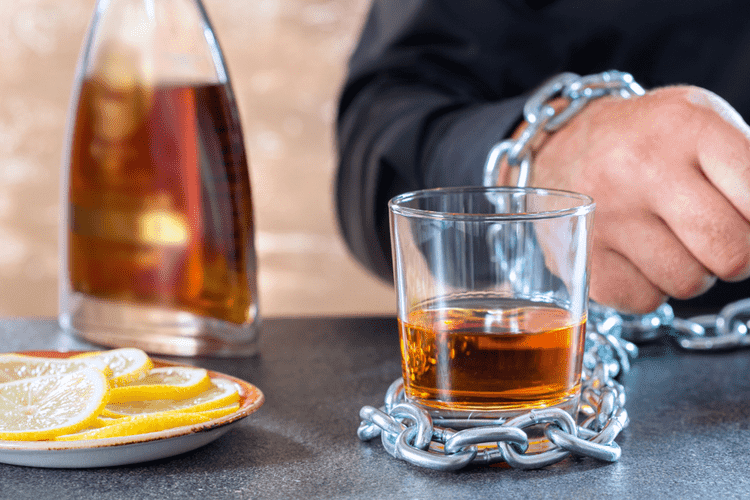Content
Skontaktuj się z nami już teraz, aby zarezerwować termin i odkryć więcej szczegółów naszych weselnych propozycji. Po dniu pełnym wrażeń zapraszamy do naszego przytulnego Hotelu i Restauracji Pod Figurą, który oferuje komfortowe pokoje, wypoczynek w kameralnym zaciszu oraz kulinarne doznania. W restauracji – oprócz dań – zakosztują Państwo w lubelskich trunkach oraz alkoholach z różnych stron świata.
Jaka odległość dzieli Hotel Podzamcze i centrum miasta Szczecin?
PKS oraz lubelskiej Starówki, stanowi idealną bazę zarówno dla przedstawicieli turystyki indywidualnej, grupowej i biznesowej. Hotels LUBLIN – duży obiekt hotelowy oferuje gościom prawie 200 miejsc w pokojach 1, 2 i 3-osobowych o wysokim standardzie z łazienkami, TV (w wybranych pokojach), w wiekszości pokoi telefon i bezpłatny dostęp do internetu. Obiekt Willa u źródeł położony jest w miejscowości Pilica i zapewnia sezonowy odkryty basen, centrum fitness, ogród oraz wspólny salon.
Hotel Podzamcze – ceny pokoi i oferty specjalne
W celu poprawy komfortu korzystania z witryny, analizowania sposobu nawigacji, oferowania i mierzenia spersonalizowanych reklam oraz ułatwiania udostępniania w mediach społecznościowych. Zezwalamy również na korzystanie z plików cookie stron trzecich (w tym pochodzących od naszych partnerów reklamowych) na naszych stronach. Obiekt Agroturystyka na Jurze Jacuzzi Sauna Beczka, położony w miejscowości Ogrodzieniec, oferuje ogród, taras oraz różne opcje zakwaterowania, w których zapewniono balkon lub patio, bezpłatne Wi-Fi i… Obiekt Agrostrzecha położony jest w miejscowości Ryczów i oferuje sprzęt do grillowania.
- Wszelkie informacje związane z wynajęciem sali oraz usług gastronomicznych i noclegowych można uzyskać telefonicznie i drogą elektroniczną.
- Obiekt SKALNY apartamenty, pokoje położony jest w miejscowości Ogrodzieniec w regionie śląskie i oferuje bezpłatne Wi-Fi, sprzęt do grillowania, ogród oraz bezpłatny prywatny parking.
- Możesz zapoznać się z dostawcami i ich indywidualnymi celami przetwarzania przechodząc na stronę listy dostawców.
- Obiekt zapewnia bezpłatne Wi-Fi we wszystkich pomieszczeniach.
Czy Hotel Podzamcze oferuje darmowe Wi-Fi?
Obiekt zapewnia bezpłatne Wi-Fi we wszystkich pomieszczeniach. Obiekt Pod Kolumnami położony jest w miejscowości Pilica i zapewnia ogród, taras, bar oraz kort do tenisa. Oferta obiektu obejmuje usługę konsjerża oraz restaurację. Obiekt Całorocznik Skała & Apartamenty, położony w miejscowości Ryczów, zapewnia ogród. Klikając „Akceptuję”, wyrażasz zgodę na przetwarzanie swoich danych przez 0 dostawców na tej stronie internetowej w celach opisanych w niniejszym powiadomieniu. Możesz zapoznać się z dostawcami i ich indywidualnymi celami przetwarzania przechodząc na stronę listy dostawców.
Ogrodzieniec to nie tylko zamek, który góruje nad okolicą swoją majestatyczną sylwetką. To również miejsce, gdzie można podziwiać unikalną architekturę skalnych formacji, zaplanować wspinaczkę na naturalnych ścianach, czy cieszyć się spacerami po okolicznych lasach i szlakach turystycznych. Witajcie w magicznym sercu Jury Krakowsko-Częstochowskiej, gdzie natura spotyka się z historią i niezwykłymi atrakcjami. Nasz hotel, położony w malowniczej miejscowości Ogrodzieniec, zaprasza Cię do odkrycia tego fascynującego regionu.
Kontakt z właścicielem obiektu Skontaktuj się bezpośrednio z obiektem, aby uzgodnić dostępne terminy i ceny. Aby go zobaczyć, konieczne jest włączenie w przeglądarce obsługi JavaScript.Ten adres pocztowy jest chroniony przed spamowaniem. Aby go zobaczyć, konieczne jest włączenie w przeglądarce obsługi JavaScript. Hotel PODZAMCZE oferuje Państwu noclegi w przytulnych, komfortowych pokojach o wysokim standardzie trzech gwiazdek. Oferujemy dostęp do sprzętu multimedialnego, w tym projektora, oraz gwarantujemy samodzielne korzystanie z przestrzeni. Usytuowany w najstarszej części Lublina zwanej Czwartkiem.
Hotel Zawiercie usytuowany jest nieopodal autostrady łączącej Kraków z Częstochową. Obiekt oferuje podzamcze.szczecin.pl nowoczesne pokoje, klub z kręgielnią oraz centrum spa z basenem, sauną na podczerwień i hydromasażem. Fajkier to trzygwiazdkowy hotel położony w cichym miasteczku Kroczyce. Oferuje on eleganckie pokoje z bezpłatnym dostępem do Internetu oraz telewizorem LCD. Dla naszych Gości zapewniamy monitorowany, bezpłatny parking hotelowy.
Obiekt Pokoje Gościnne w Ratuszu położony jest w Ogrodzieńcu, w odległości 2 km od zamku. Nasz obiekt PODZAMCZE posiada udogodnienia dla osób niepełnosprawnych. Zapewniamy 70 miejsc noclegowych w 31 pokojach z możliwością dostawek. Kliknij ikonę i wyślij jedno zapytanie do kilku obiektów. Dekoracje, kwiaty, oświetlenie – wszystko według Twoich upodobań! Stworzymy dla Ciebie niezapomnianą oprawę Tego szczęśliwego dnia, a plenery wokół hotelu tworzą unikalną oprawę szczęśliwych chwil.
Adresy w pobliżu
Szczególny klimat wnętrz oraz tradycyjna polska gościnność z pewnością sprawią, że czas spędzony w naszej restauracji pozostanie na długo w Państwa wspomnieniach i zachęci do kolejnych wizyt. Specjalizujemy się także w organizacji i obsłudze przyjęć weselnych, bankietów, spotkań firmowych, imprez okolicznościowych i zjazdów rodzinnych. Wszelkie informacje związane z wynajęciem sali oraz usług gastronomicznych i noclegowych można uzyskać telefonicznie i drogą elektroniczną.
Do dyspozycji naszych gości korzystających z własnego transportu oddajemy bezpłatne miejsca parkingowe monitorowane, zarówno dla samochodów osobowych, minibusów jak i autokarów. Planujesz konferencję, szkolenie lub spotkanie biznesowe? Nasz obiekt oferuje nowocześnie wyposażone sale konferencyjne, idealne zarówno na większe zgromadzenia (do 150 uczestników), jak i kameralne spotkania (do 20 uczestników).


